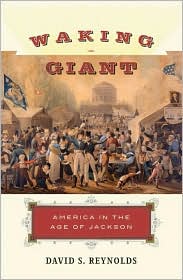 gnant." Katzenbach, as deputy attorney general in the Kennedy Administration was
gnant." Katzenbach, as deputy attorney general in the Kennedy Administration was intimately involved in almost every civil rights crisis of the early 1960s -- the 1961 Freedom Rides, the 1962 desegregation of the University of Mississippi, the 1963-64 efforts to win congressional passage of the landmark Civil Rights Act and the 1965 voting rights crusade centered on Selma, Ala. But he rightly stresses that his...memoir...is "not intended to be a historical work of scholarship."
Still, if we can't rely upon the book for entirely dependable accounts of events such as the battle at Ole Miss, Katzenbach's perceptive and insightful portrayals of RFK and LBJ will enrich future histories for decades to come.
 ecline in the post-World War II period." Some of this makes sense. As Oren notes,
ecline in the post-World War II period." Some of this makes sense. As Oren notes,226 wars were fought between 1946 and 2002 and that the number of refugees has quadrupled in the last 40 years alone. Indeed, the reduction in the number of wars between modernized countries -- less the result of pacifism, [van Creveld] insists, than of the fear of nuclear holocausts -- merely obscures the undiminished number of conflicts among developing nations.
 WAKING GIANT: America in the Age of Jackson by David S. Reynolds (Harper/HarperCollins) is reviewed in the New York Times by Jay Wink. "More often than not, historians treat this period with a wave of a hand, as little more than the run-up to the unbridled struggle between North and South," Wink writes. Instead, Reynolds
WAKING GIANT: America in the Age of Jackson by David S. Reynolds (Harper/HarperCollins) is reviewed in the New York Times by Jay Wink. "More often than not, historians treat this period with a wave of a hand, as little more than the run-up to the unbridled struggle between North and South," Wink writes. Instead, Reynoldsasks us...to more carefully consider the brawling, chaotic, boisterous years from 1815 to 1848 as a fascinating age in its own right. In this, he succeeds handsomely....
Far more than just a political story or, for that matter, a story of Andrew Jackson, Reynolds’s book shines a bright light on the cultural, social, intellectual and artistic currents buffeting the nation.
 edited by Peter Straub (Doubleday). "What exactly is the 'new horror?'" Straub asks.
edited by Peter Straub (Doubleday). "What exactly is the 'new horror?'" Straub asks. What makes it different from, or better than, the old stuff? The answers, as Straub notes in his elegant introduction, have their roots in the horror boom that peaked and crashed in the 1980s.When the horror boom went bust,
The problem lay in the narrow view of horror fiction as a marketing category tied to specific tropes and specific expectations, rather than as a flexible instrument capable of addressing the "essential terror within the human animal." The 24 stories in Poe's Children illuminate that "essential terror" through an impressive, highly personal assortment of perspectives and techniques. The result is a remarkably consistent, frequently unsettling book that does as much to blur the artificial boundary between genre fiction and "literature" as any anthology in living memory.